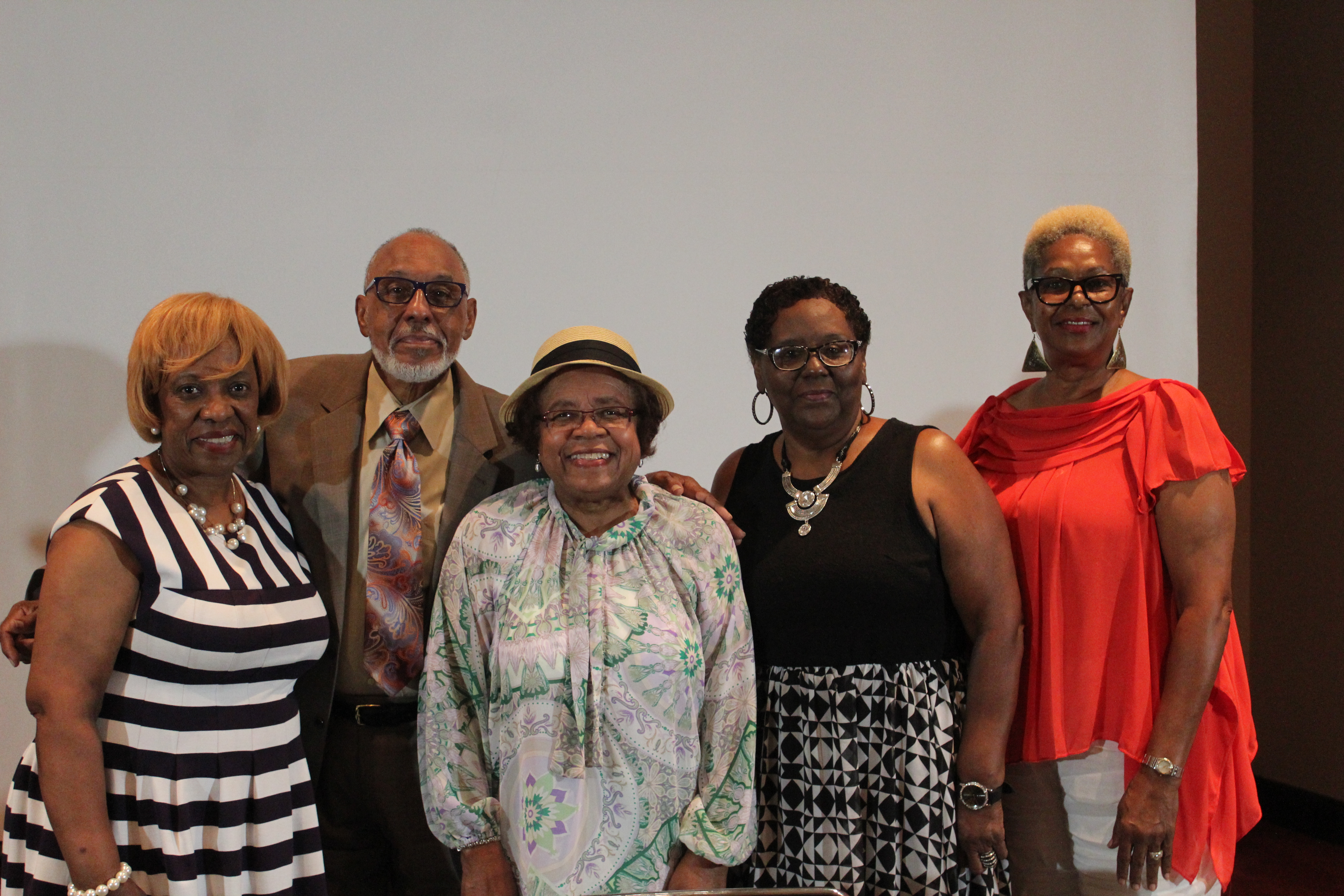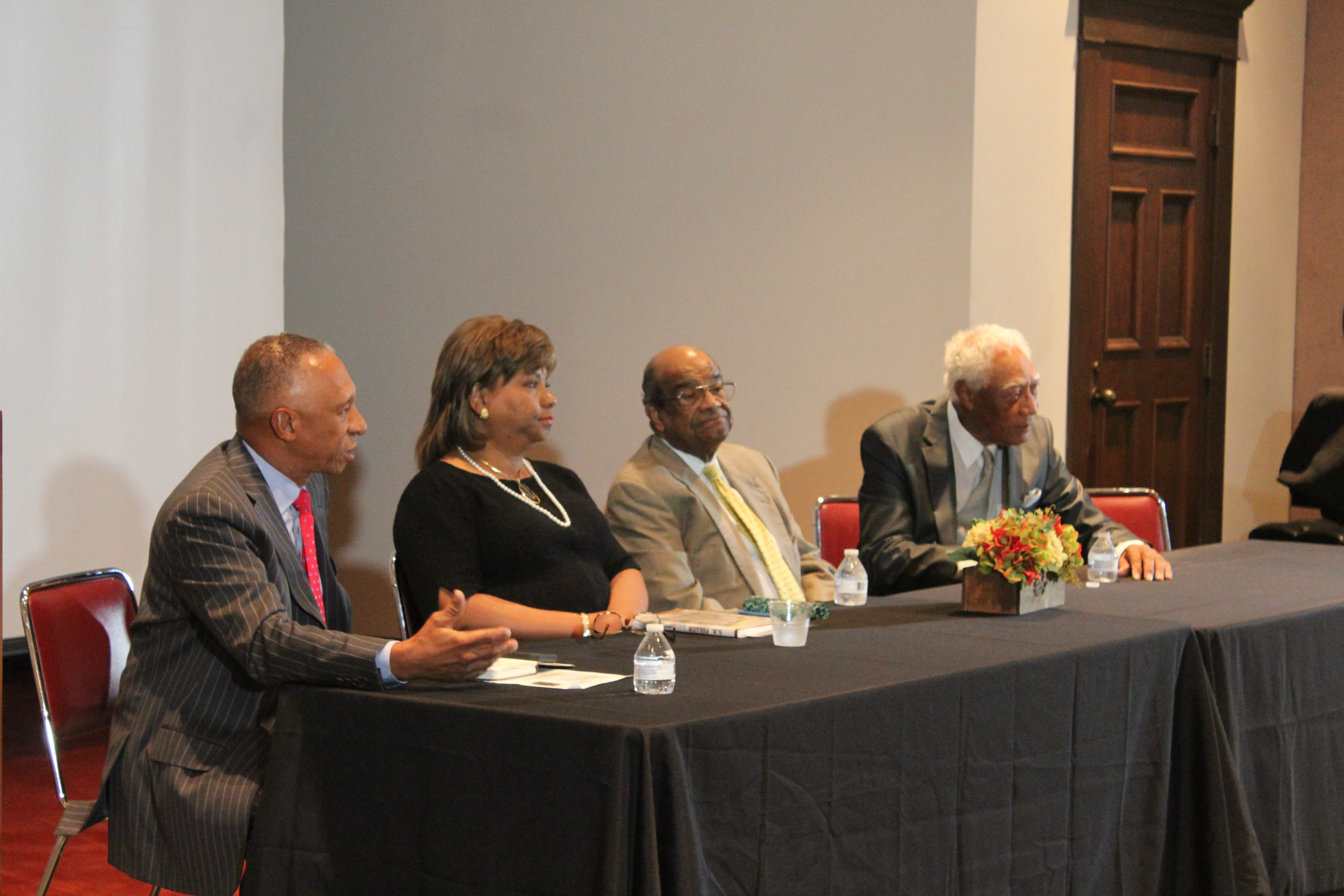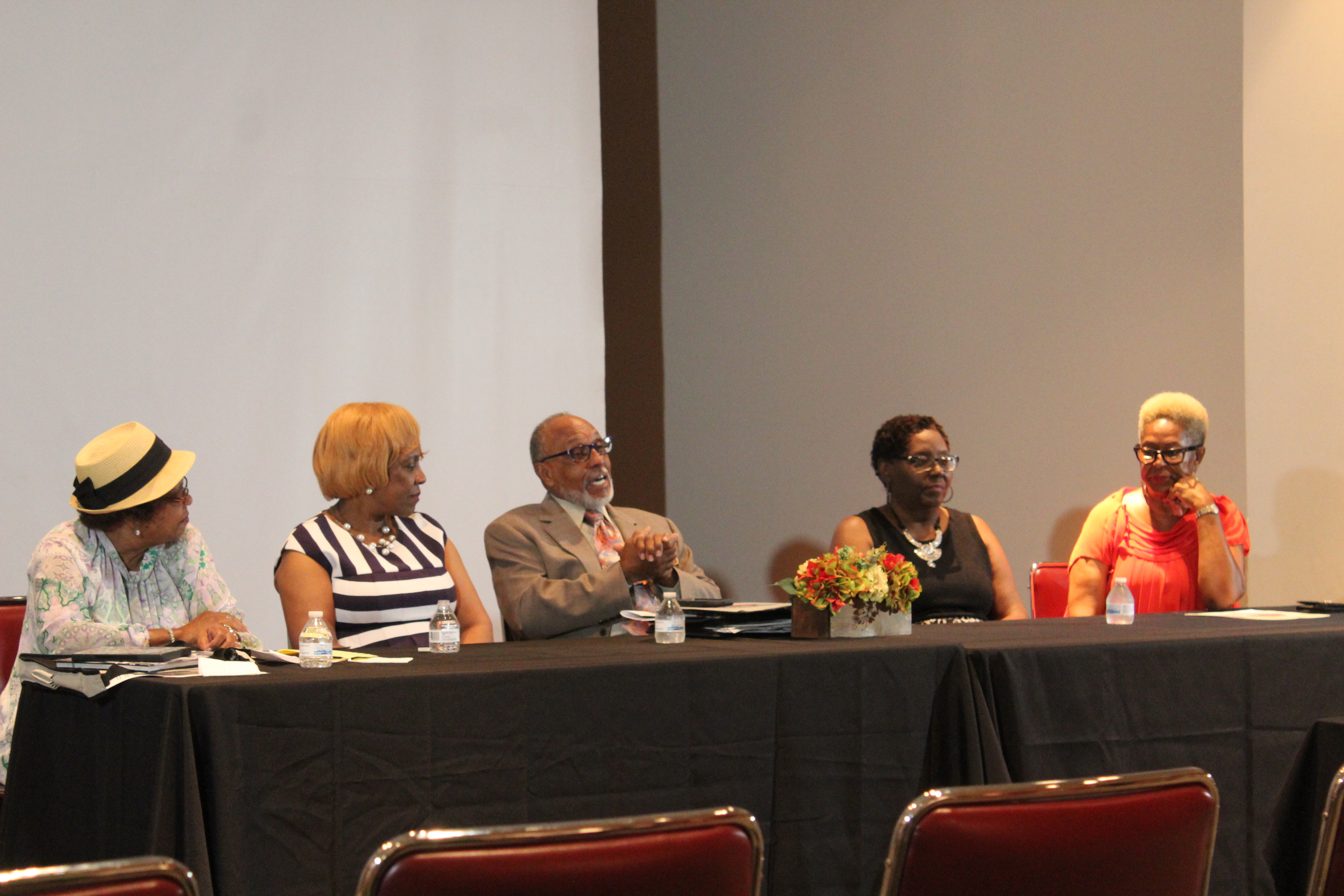By Ariel Worthy and Erica Wright
The Birmingham Times

The Ballard House Project’s “Community Conversations” brought a variety of voices and history to the Birmingham Public Library Central Branch this week.
Birmingham resident Andrea Hurst talked about the importance of family recipes as well as the value of “table talk” during family dinners.
“We have come together through food, and we can stay together with food,” said Hurst, a panelist during a session on southern cuisine and heritage.
During the session, audience members shared stories of food memories from a grandmother’s homemade ice cream to a mother’s homemade bread pudding.
“One of my fondest memories is that my maternal grandmother would make peppermint ice cream,” said resident Carol Kirby. “And I have actually driven her from Bessemer to the opposite side of town looking for the right peppermint stick.”
The Community Conversations are an effort to better the Birmingham of today by building on the dynamism that shaped the city early in its history and which carried on through the pivotal Civil Rights Movement period, said Ballard House Project Executive Director Majella Hamilton.
Sessions included topics on Civil Rights Foot Soldiers, the impact of women’s clubs and organizations, early black businesses, economic and legal empowerment, and tips on researching family roots and neighborhoods and communities.
Foot Soldiers shared their experiences from the Civil Rights Movement with educator Odessa Woolfolk serving as moderator.
The panelists, Janice Wesley-Kelsey, Charles Avery Jr., Gwendolyn Sanders-Gamble and Paulette Porter, were in high school when they joined the Children’s March. Woolfolk taught Kelsey and Gamble at Ullman High School.
“I was very naïve about race relations,” Kelsey said. “I didn’t encounter people of a different race in our community, and I thought all was well in my world.”
It wasn’t until a friend told her about one of the mass meetings held at a local church during the movement that she attended.
Her reality check came from a pastor named James Bevel when he spoke with the teenagers.
“He said, ‘How many electric typewriters do you have in your school?’ and I said, ‘one’, but I was a typist so I could type on it. He said ‘did you know at (all white) Phillips High School they have three rooms of electric typewriters?’ That was my first reality check that separate was not equal.”

Another panel discussed the need to educate the youth on black history. Panelists Carol Clarke, Helen Shores Lee, Lyord Watson and Patricia Ashford talked about parents sharing history with their children.
“Even though I am a history teacher, I would never say I haven’t learned anything new,” Woolfolk said from the audience. “I think what we all learned is personal stories of others who grew up in different parts of the community and the similarities of the kinds of issues that families were confronted with. So, I learned a lot about individual communities. The general pattern of African American life, I know pretty well, but there’s always something to learn about each individual story.”
During the session on economic empowerment, panelists Bob Dickerson, Carol Kirby, Julian Mason Davis and Dr. Jesse Lewis Sr., discussed black businesses in Birmingham that dated back to the late 19th century.
Lewis, 92, discussed several of his businesses including his marketing agency, Jesse J. Lewis and Associates and the Birmingham Times newspaper which he founded in 1963. He also discussed the importance of helping your community.
“Everything that I do is for black people,” said Lewis.





